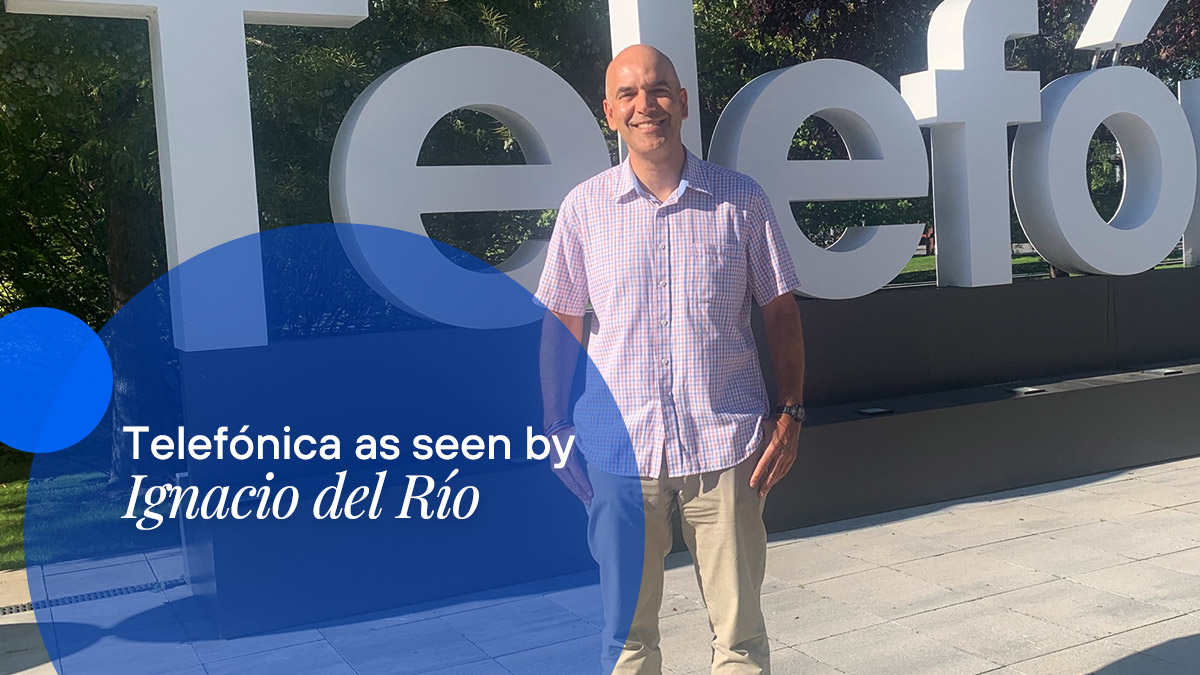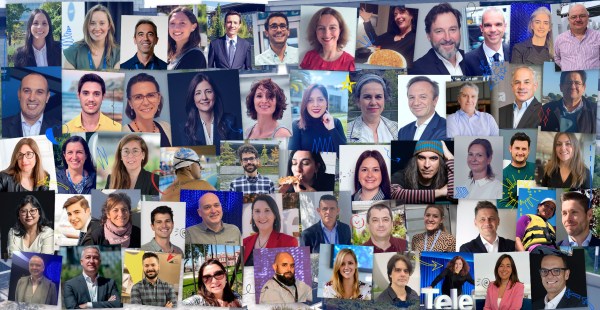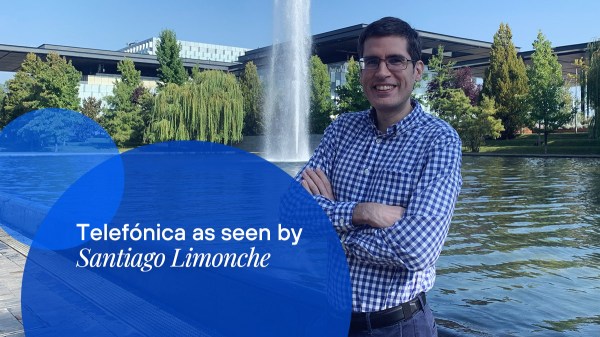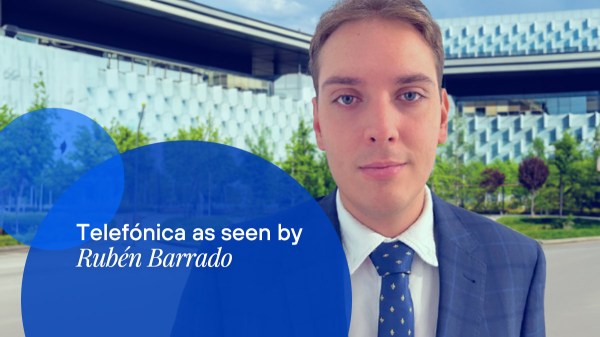How long have you been with Telefónica and what is your assessment of your time here?
I have been here 26 years after finishing my scholarship period. As soon as I was offered a scholarship I turned down one from IBM that I had already been awarded and I have never regretted my decision. I consider that for a telecommunications professional, being in this company is the highest aspiration. I have worked on many enriching projects and I have met people of great technical and human value.
Of course, we have our little things, like all big companies, but we are also capable of doing (practically) everything! I remember a customer asking one of our sales representatives if we would be able to undertake a complex project and he answered without hesitation: “Of course, we are Telefónica!
Is there any project at Telefónica that you feel particularly satisfied with or proud of?
Of course there is. To make a long story short, I would highlight two:
A few years ago I coordinated the employee idea programmes Patenta-Idealab and Patenta-Emprendedores. Colleagues voted for the best ones and a team of managers and experts awarded the prizes. It was a gift to get a drone’s eye view of how all the departments work. I discovered that we have a lot of talent and creativity, although it was not so easy to put the ideas into practice!
The other is the Intern Teacher programme where we can all teach what we are particularly good at. You are trained as a teacher and discover a group of generous, enthusiastic colleagues who are eager to improve things, as well as the satisfaction of facilitating learning for your own colleagues. The icing on the cake is that for the last couple of years I have been leading this project, together with a colleague, thus contributing our work to making it grow.
What do you think Telefónica has contributed to society since its inception?
All telcos develop telecommunications because it is their business and they adapt to technological changes. But what makes Telefónica unique is that it has always innovated to accelerate this process. Here are three examples:
The 1970s: before the Internet existed, Telefónica created REDT, the world’s first public packet-switched network, and shortly afterwards Tesys, a system whose software was created here and exported to many countries.
The 1990s: to accelerate Internet use in Spain, we created the InfoVía service with which we surpassed Italy and France in penetration and received praise from even Bill Gates himself.
Current affairs: after decades of bravely betting on fibre optics instead of the old copper ADSL, we are still the European and Western country with the highest deployment, behind only Korea and Japan.
I love to hear Jose María Álvarez-Pallete say that his goal is to “live up to” those who have gone before us with such a brilliant company CV.
Where do you see Telefónica in the future?
Well, I have no doubt that it will continue where it has always been: in all businesses where technology is key, and without giving up anything, with courage. If it goes wrong, like the Keteké social network, then we learn; and if it goes well, we move forward and diversify revenues, like the latest vertical businesses (health, security, solar energy, etc.).
Surely in the future we will communicate mind-to-mind, which will be great for people with disabilities, for example. And Telefónica will be there because we are a technology company with a passion for connecting people.
But not everything at any price. Telefónica has always been clear about its ethical principles and now we have a very clear example in Artificial Intelligence. We will be an active part of this reflection.
Could you live without a mobile phone?
Probably yes, but why give up something so useful?
I would rewrite the question: can you control your use of technology?
I try to do it by applying expert advice and common sense: I limit the time I spend on social media, I leave my mobile phone sleeping in the living room, we don’t take it out during meals… and it works!
Giving it up reminds me of a music critic who was asked the classic question: Beatles or Rolling Stones? He replied: “God gave us both to enjoy, why give up one of them?”
Well, with mobile phones and technology, the same.
Help us solve one of humanity’s great enigmas: the potato omelette… With onion or without onion?
“Toquecebollista“: just like a good referee, he doesn’t get noticed, but his work improves the game, a little onion (well fried, please) and without being noticed, gives a sweet touch to the omelette that elevates it to its maximum splendour, worthy of a great 10 in the LOTE (Legendary Spanish Omelette Observatory) that my daughter Alba maintains with care.
Nominate another partners to appear in this section
Is there a maximum number? Well, I’ll put 10 but I could put 100 more.
I hope that Esther Manjavacas, Sergio de la Calle, Cándido García López, Laura Lacarra, David Querol, Catalina Sans, Seguismundo Alonso, Alicia Aragón, Antonio Hernández Cerón and Carlos Villalba will also be encouraged.
I found the interview very funny, thanks for the opportunity!











